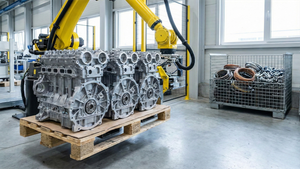"Pioneering" in name, "aggression" in fact - a Japanese memorial museum, during an exclusive interview with the Global Times on Tuesday, exposed the real nature of the so-called Japanese settlements in so-called Manchukuo in Northeast China, peeling back the layers of a little-known historical details when Japanese invaders controlled Northeast China from 1932 until 1945.
Operated by a Japanese civic organization and established with the aim of faithfully conveying historical facts and helping younger generations in Japan better understand the horrors of war and the value of peace, the Memorial Museum for Agricultural Emigrants to Manchuria in Nagano Prefecture, Japan, has received 250,000 visitors since its opening in 2013, according to the latest data revealed by Chunichi Shimbun on Tuesday.
On September 18, 1931, Japanese troops began the bloody invasion of China. In pursuit of permanent occupation over Northeast China, a 20-year project to settle 1 million Japanese farmers in so-called Manchukuo was announced in 1936, organizing "pioneering groups" to launch economic aggression against Northeast China.
The program was carried out under the guise of "pioneering," which in reality involved complicity in aggression through the dispossession of local residents' lands and homes, Aki Misawa, secretary-general of the museum, told the Global Times on Tuesday via email.
According to Misawa, there is an introductory panel in the museum that explicitly states: "Most of the vast farmland acquired by the settlement groups was obtained through coercive low-price purchases and forced eviction of indigenous farmers."
Also, the museum clarifies that "Manchukuo" was, by de facto, a Japanese puppet regime controlled by the Japanese Kwantung Army, and notes that it was never recognized as a legitimate state in the international community, Misawa said.
According to Xinhua, "Manchukuo" was a puppet state established by Japanese invaders to control Northeast China from 1932 until 1945. The Japanese occupiers made Aisin-Gioro Puyi, the last emperor of the Qing Dynasty (1644-1911), the puppet emperor of "Manchukuo."
"We are committed to properly presenting both the victimization and perpetration aspects of this history," Misawa said.
To deceive farmers across Japan into responding to the call for immigration, Japanese militarists launched a variety of propaganda campaigns domestically. Posters, magazines and postcards produced by the militarists depicted early Japanese immigrants seemingly living a prosperous and happy new life in Northeast China. These false images were highly enticing to the impoverished farmers of Japan at the time.
"You can get 20 hectares of land," "Manchuria is a lifeline of Japan" ― The museum revealed the misleading propaganda on its website.
According to the museum's statistics, approximately 270,000 Japanese farmers entered Northeast China.
However, as time passed, the illusion surrounding the "pioneering groups" began to shatter.
As the war intensified, young Japanese men from the "pioneering groups" were continuously drafted into military service. By August 1945, as the Japanese Kwantung Army faced inevitable defeat, they chose to conceal the situation and secretly retreated, abandoning the remaining elderly, weak, sick and women and children of the "pioneering groups" at the front lines of the war. Members of the "pioneering groups" fled in panic; some chose to commit suicide, while others became orphans left behind in China.
Data from the museum indicates that nearly 33,000 farmers from Nagano Prefecture traveled to Northeast China, but fewer than 17,000 ultimately returned to Japan.
Japanese militarism brought profound suffering to the peoples of both Japan and China, yet the kind-hearted Chinese people still embraced and cared for thousands of war orphans.
There are many expressions of gratitude from Japanese war orphans toward China showcased in the museum.
When sharing memorable encounters in the museum, Misawa recalled meeting one elderly survivor in a wheelchair who was visiting the museum with their family. They had lived through Japan's defeat in so-called Manchukuo and, while awaiting repatriation, worked in a coal mine. During a collapse accident, a Chinese worker risked his life to save the lives of several Japanese miners. "This is something I must share [with more people]," the elderly Japanese survivor said.
Misawa told the Global Times that the feedback since the opening of the museum has exceeded expectations. For those connected to this history, the museum has helped awaken long-suppressed memories. Meanwhile, visitors encountering this history for the first time often express how deeply educational and thought-provoking the experience has been.
Although many of those who lived through this period of history firsthand had already passed away, the museum aims to pass the history onto the next generations and inspire more people to think about how to achieve a peaceful society.
This year marks the 80th anniversary of the victory of the Chinese People's War of Resistance against Japanese Aggression and the World Anti-Fascist War. The museum plans to continue to hold special exhibitions, lectures and a theatrical event in the autumn.
The past war inflicted immeasurable suffering on the Chinese people, and peace-loving individuals in both China and Japan strongly advocate for cherishing the present peace. However, Japan has recently significantly increased its military budget, with some arguing it seeks to become a "normal country" unrestrained by its pacifist constitution or even a military power.
In response to this dangerous trend, Misawa told the Global Times that "We must confront historical facts with humility and sincerity. Beyond national or ethnic divisions, we should stand with those who suffered and build peace through dialogue."
"Though our influence is modest, we remain committed to fostering spaces for learning from history," Misawa said.
This story first appeared in Global Times:
https://www.globaltimes.cn/page/202505/1335034.shtml.
Company: Global Times
Contact Person: Anna Li
Email: editor@globaltimes.com.cn
Website: https://globaltimes.cn
City: Beijing
Disclaimer: This press release may contain forward-looking statements. Forward-looking statements describe future expectations, plans, results, or strategies (including product offerings, regulatory plans and business plans) and may change without notice. You are cautioned that such statements are subject to a multitude of risks and uncertainties that could cause future circumstances, events, or results to differ materially from those projected in the forward-looking statements, including the risks that actual results may differ materially from those projected in the forward-looking statements.
Source: Prodigy.press
Release ID: 1556490






